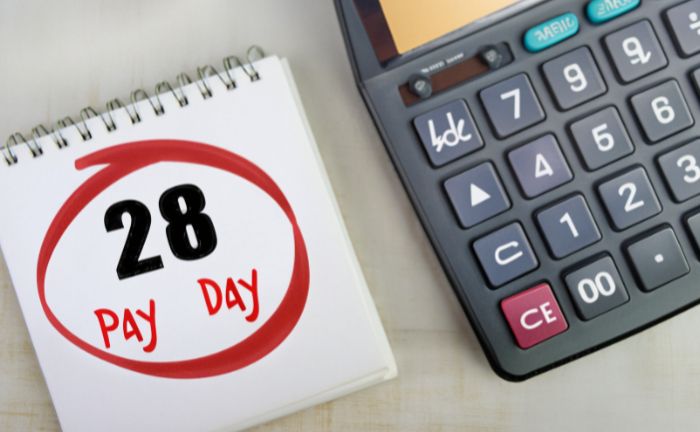The Internal Revenue Service (IRS), the government agency responsible for tax collection and enforcement, processes income tax returns on a first-come, first-served basis. Therefore, filing your income tax return is advisable, allowing you to expedite the tax refund process if you are entitled.
Discovering any issues with your tax return early in the tax season gives you ample time to rectify them before the tax deadline, avoiding any last-minute rush. While seniors with dependent minors may find it more convenient to file later, evaluate the information provided to determine what works best for your situation.
Application for IRS Individual Taxpayer Identification Number (ITIN)
Minors who need to obtain a tax identification number must submit Form W-7, also known as the “Application for IRS Individual Taxpayer Identification Number” (ITIN), which is a nine-digit number issued by the IRS to individuals who are ineligible for a Social Security number but need to file a tax return.
The W-7 form requires to provide personal details such as their name, date of birth, and country of citizenship. Additionally, they must attach documents that verify their identity and alien status, such as a passport or a certified copy of a birth certificate.
Typically, minors must submit Form W-7 along with their tax return, whether dependents or individual filers with their own income. Once the IRS processes the application, the minor will receive an ITIN, which they can use for future tax filings.
What Is an ITIN?
The Internal Revenue Service (IRS) issues three types of Taxpayer Identification Numbers (TINs): the Individual Taxpayer Identification Number (ITIN), the Social Security Number (SSN), and the Employer Identification Number (EIN). The Individual Taxpayer Identification Number (ITIN) is a nine-digit identifier issued by the IRS.
The ITIN facilitates the filing of tax returns and the fulfillment of tax responsibilities, enabling taxpayers to receive refunds and claim tax credits as applicable, as it is designed for individuals who are ineligible for an SSN but are required to file a U.S. tax return. That means it is exclusively used for tax-related purposes and caters to resident and non-resident individuals with tax obligations.
NOTE: If an individual is ineligible for an SSN, they can apply for an ITIN, while businesses can secure an EIN.
What are the tax requirements for minors?
The IRS determines a minor’s eligibility to be claimed as a dependent based on several factors. These include the child’s relationship to the taxpayer, which stipulates that the child must be the taxpayer’s biological child, stepchild, foster child, sibling, or a descendant of any of these.
- Age: The minor must be under 19 years old. However, if they are a full-time student, they can be up to 24 years old and still be considered dependent.
- Residency: Juniors must live with their parents for over half the year. This means they need to reside with their parents for at least 183 days of the year.
- Financial Support: The parents’ child must provide more than half the financial resources needed for the minor’s living expenses.
These IRS criteria are crucial in establishing whether a minor can be claimed as a dependent on someone else’s tax return.
Differences between “Tax Return” and “Tax refund”
Although these two terms seem similar, they are not and have a significant difference that needs to be noticed. On the one hand, a Tax Refund refers to the money a taxpayer receives back from the government if they overpay their taxes throughout the year.
It occurs when the total amount of tax withheld from their income or the estimated tax payments exceeds their actual tax liability. The excess amount is refunded to the taxpayer after they file their tax return and the government verifies the calculations.
On the other hand, a Tax Return is a form or document that individuals, businesses, or entities file with the tax authorities to report their income, deductions, tax liability, and eligibility for tax credits. It provides a detailed breakdown of the taxpayer’s financial information for the relevant tax year.
The tax return is used by tax authorities to assess the taxpayer’s liability and determine if they owe additional taxes or are entitled to a refund.
Do Minors Have to File Taxes?
You must consider key tax-related factors if you’re a minor earning unearned income like interest or dividends. If you earn $1,150 or more in the tax year, you must file a tax return to ensure your tax responsibilities are met, and your income is correctly reported.
Furthermore, if you receive tips or generate self-employment income over $400 in the tax year, you must pay Social Security or Medicare taxes, no matter how much you earn. This is to ensure that you pay into Social Security and have access to benefits in the future.
However, there’s a scenario where you can apply for a tax refund withheld. If your income falls below the standard deduction threshold for the tax year, which is $12,950, you can file a tax return to reclaim the withheld taxes. This provision is especially relevant for minors earning income from temporary, summer, or other employment activities.
Depending on where they live and work, minors may have additional state or local tax requirements. Researching and understanding these requirements is essential to ensure you meet all your tax responsibilities. By following these guidelines, you can ensure you’re meeting your tax obligations and making the most of your income.
Sample tax returns
Now that you know how tax returns work, to illustrate that with some examples, let’s consider a minor who performs work as an online tutor and generates $800. Although this amount does not exceed the standard deduction threshold, the child must file a tax return to report their income and ensure compliance with applicable tax regulations.
Another example might be a minor who starts a small business selling handcrafted goods. Even though this amount does not exceed the standard deduction threshold, the child must file a tax return to report their income and pay the appropriate Social Security or Medicare taxes, as necessary.
These examples illustrate how minors can be subject to tax liability even if their income is insignificant. Children and their parents or guardians should know these regulations and comply with tax requirements to avoid legal problems or penalties.
References
- “Child Tax Credit 4 | Internal Revenue Service.” Internal Revenue Service | An Official Website of the United States Government, https://www.irs.gov/faqs/childcare-credit-other-credits/child-tax-credit/child-tax-credit-4.
- Lake, Rebecca. “Teens and Income Taxes.” Investopedia, Investopedia, 3 Mar. 2023, https://www.investopedia.com/teens-and-income-taxes-7152618.

For years I have studied American finance regulations. All the information in this blog is sourced from official or contrasted sources from reliable sites.
Salesforce Certified SALES & SERVICE Cloud Consultant in February 2020, Salesforce Certified Administrator (ADM-201), and Master degree in “Business Analytics & Big Data Strategy” with more than 13 years of experience in IT consulting.



